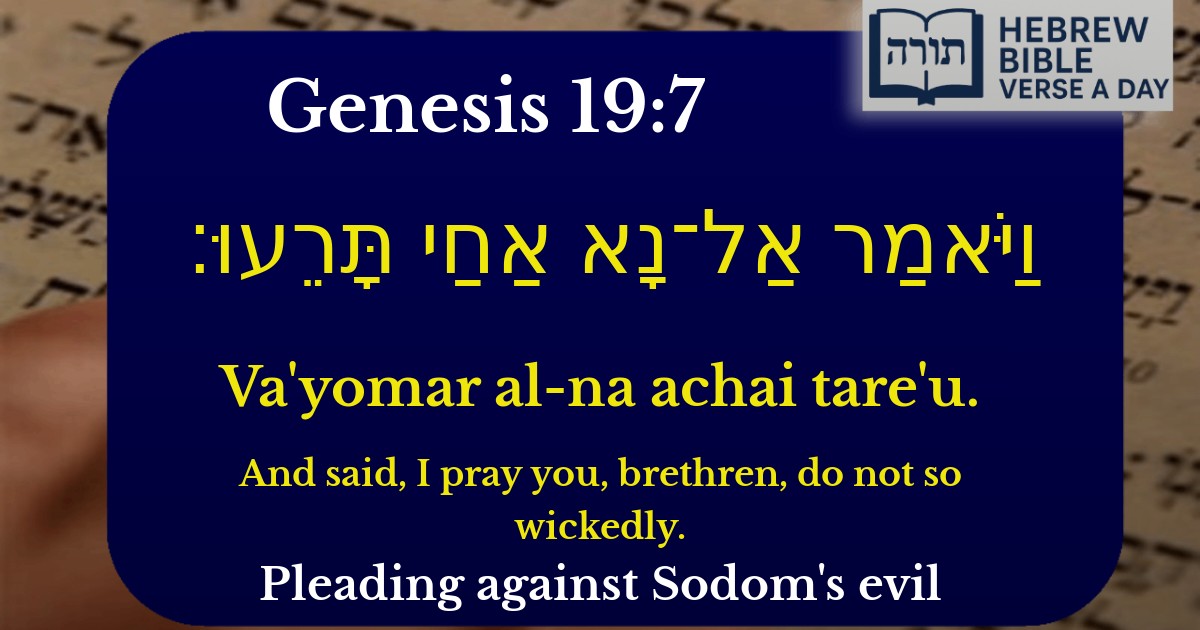Join Our Newsletter To Be Informed When New Videos Are Posted
Join the thousands of fellow Studends who rely on our videos to learn how to read the bible in Hebrew for free!
Hebrew Text
וַיֹּאמַר אַל־נָא אַחַי תָּרֵעוּ׃
English Translation
And said, I pray you, brethren, do not so wickedly.
Transliteration
Va'yomar al-na achai tare'u.
Hebrew Leining Text
וַיֹּאמַ֑ר אַל־נָ֥א אַחַ֖י תָּרֵֽעוּ׃
וַיֹּאמַ֑ר אַל־נָ֥א אַחַ֖י תָּרֵֽעוּ׃
🎵 Listen to leining
Parasha Commentary
📚 Talmud Citations
This verse is not quoted in the Talmud.


Context of the Verse
The verse "וַיֹּאמַר אַל־נָא אַחַי תָּרֵעוּ" (And said, I pray you, brethren, do not so wickedly) appears in Bereshit (Genesis) 19:7, where Lot pleads with the men of Sodom to refrain from harming his guests. This occurs during the episode where the angels visit Sodom, and the townspeople demand to "know" Lot's visitors (a euphemism for sexual violence).
Lot's Plea: "אַל־נָא אַחַי תָּרֵעוּ"
Lot addresses the men of Sodom as "אַחַי" (my brethren), despite their wickedness. Rashi (Bereshit 19:7) explains that Lot was attempting to appease them by speaking gently, hoping they would listen to reason. The term "תָּרֵעוּ" (do not act wickedly) is a plea against their immoral intentions, emphasizing the severity of their planned transgression.
Moral and Ethical Lessons
Linguistic Nuances
The phrase "אַל־נָא" (I pray you) conveys urgency and desperation. Ibn Ezra highlights that "נָא" softens the request, showing Lot's attempt to de-escalate the situation. The term "תָּרֵעוּ" (from the root רע"ע) implies not just wrongdoing but active harm, underscoring the gravity of their intended sin.
Halachic and Philosophical Implications
The Rambam (Hilchot De'ot 6:1) derives from this episode that one must rebuke wrongdoing, even at personal risk, as Lot did. However, the failure of his plea also serves as a lesson about the limits of moral persuasion in a thoroughly corrupt society.